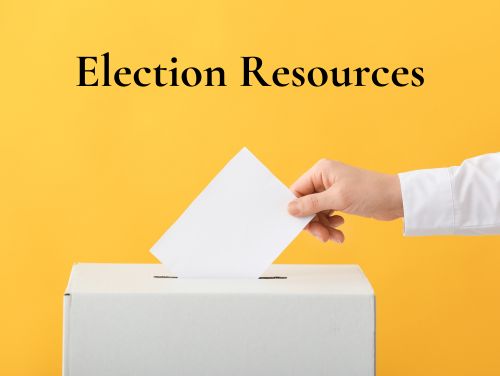Election Resource Roundup
12 June, 2024With the 2024 General Election fast approaching, we’ve pulled together some resources to help you confidently navigate politics in the classroom and boost oracy in your school through debates, campaign speeches, peer interviews and manifestos.
Author Events, Assemblies and Lesson Plans
- Sign up for a free Waterstones Virtual School event with political podcaster, writer and strategist Alastair Campbell on Wednesday 19th June at 10.30 as he shares his knowledge and passion for politics and introduces his book Alastair Campbell Talks Politics. Suitable for pupils aged 10-16.
- Our Generation, Our Vote is a political literacy project from Democracy Classroom and Save the Children that is giving young people aged 6-17 the chance to vote in a national youth election. Download detailed, editable presentations and other teaching materials for KS1-KS3 (found in the Schemes of Work tab). The deadline for submitting online votes for the national project is 21st June but you can hold your own in-school election later in the term.
- Young Citizens have produced teaching resources for primary and secondary that cover how democracy works, the difference between local and central government, why we have laws, and voting in a general election.
- First News Children’s Party provides a range of resources to support discussion around the General Election and ensure that young voices can be heard. These include a video resource about how a general election works, a general election dictionary, an assembly pack and video interviews by young reporters with leading politicians.
- Topical Talk provides resources to encourage and stimulate discussion about current affairs and the news for pupils aged 10+ all through the year. Recent resources explore information and mis-information and the use of generative AI in the UK election, with a further resource on democracy and the election to be released on Monday 24th June. If you want to delve deeper, explore the back catalogue of resources covering elections in other countries, the role of election polls, the power of protest and many more topics. All the resources are free to download with registration.
Booklists
- Just Imagine have put together a booklist for the primary classroom that aims to support you in teaching critical thinking and political literacy. The list covers books for 5-11 year-olds, ranging from Rashmi Sirdeshpande’s How to change the world to Rich Knight’s If I ran the country.
- Books for Topics also has a politics and democracy booklist that includes fiction and non-fiction titles for all primary aged pupils.
- For secondary students, explore BookTrust’s booklist with titles covering issues on politics and human rights.
Media Literacy
- Newswise, the free news literacy programme for primary aged children from The Guardian Foundation, provides comprehensive teacher guides on talking about news in the classroom as well as units of work for KS2 pupils. Sign up for a free webinar on 18th June introducing their new resources for 7-9 year-olds or give pupils the opportunity to put their questions to working journalists at one of the online Journalist Q&As coming up this month.
- BBC Teach has a Young Reporter journalism and media project for secondary aged pupils with helpful videos on misinformation and media literacy from BBC reporters.
- The Media Literacy Ambassador Programme from Behind the Headlines, trains young people in Years 9-13 to teach their peers about fake news. The full free programme is available to schools in the Midlands, Greater Manchester, and South and West Yorkshire but all secondary schools can download a teacher guide and learning resources to run the programme independently.
Newspapers for Young People
- Help pupils engage with current affairs and develop their cultural capital going forward by taking out a subscription to one of the newspapers or online news platforms for children and young people. First News, The Week Junior and The Day are all designed to present the big, complex issues of the day in age-appropriate ways to help young people separate fact from fiction and make sense of the world around them.

